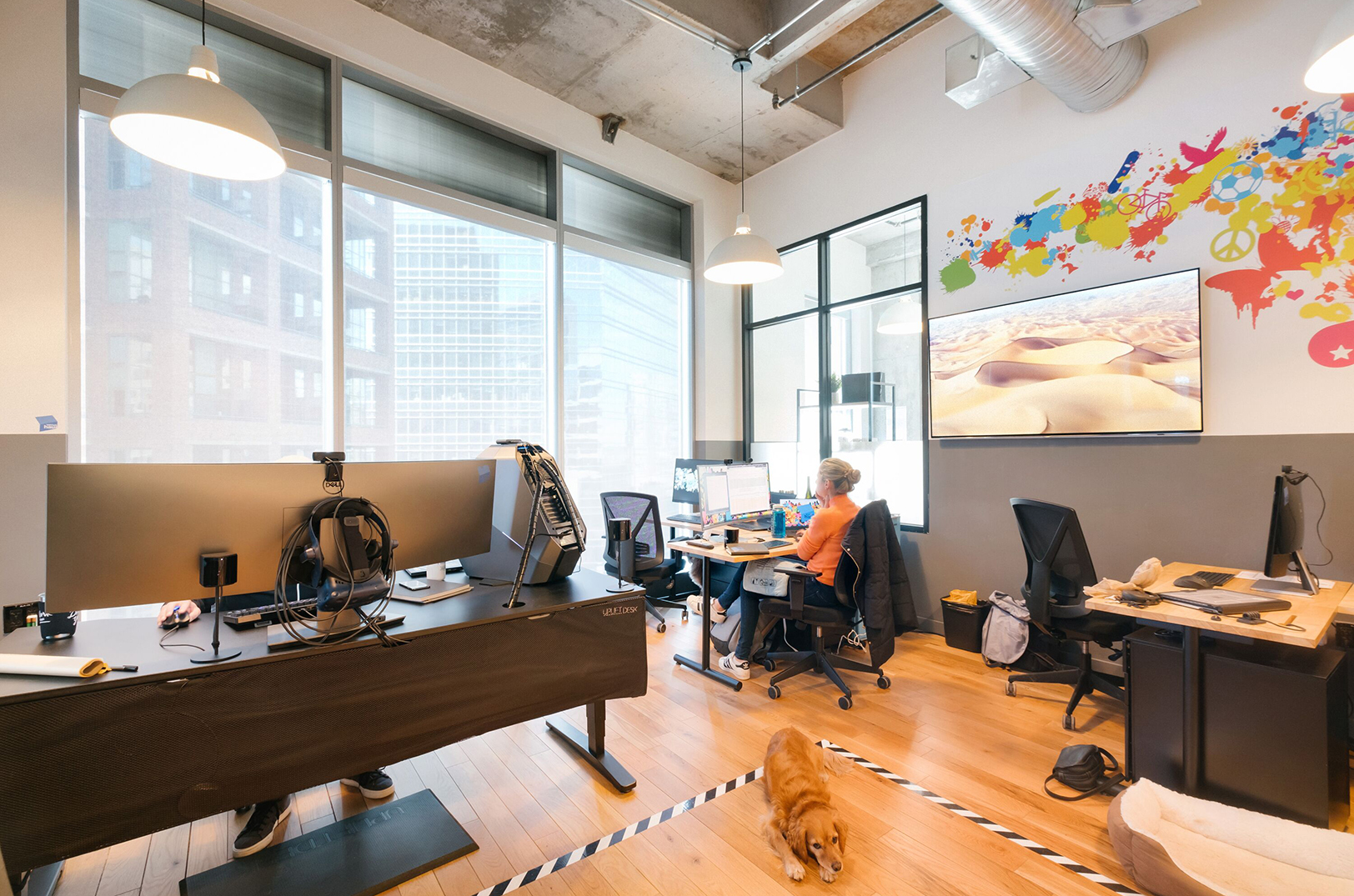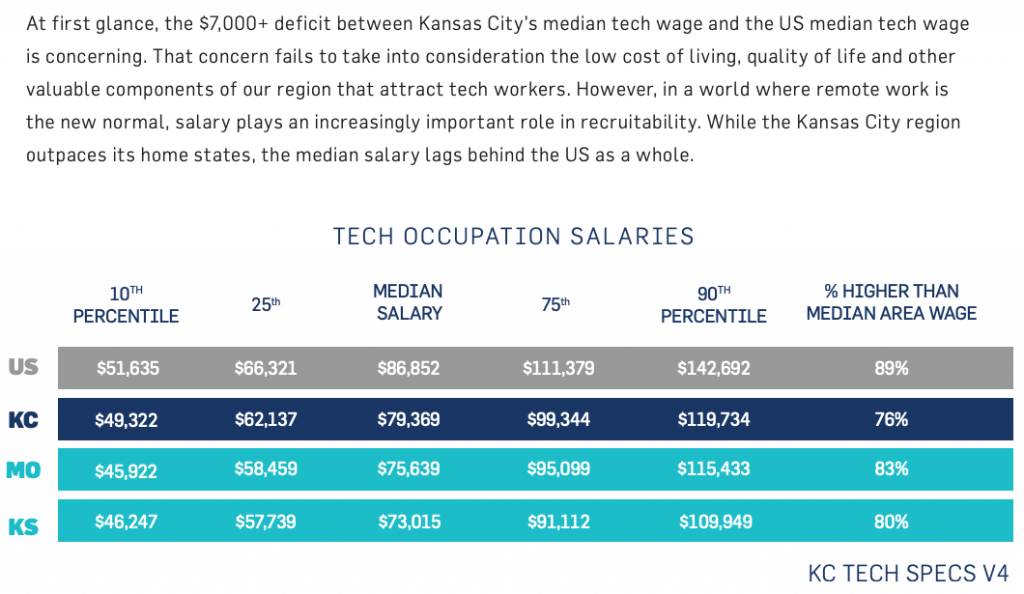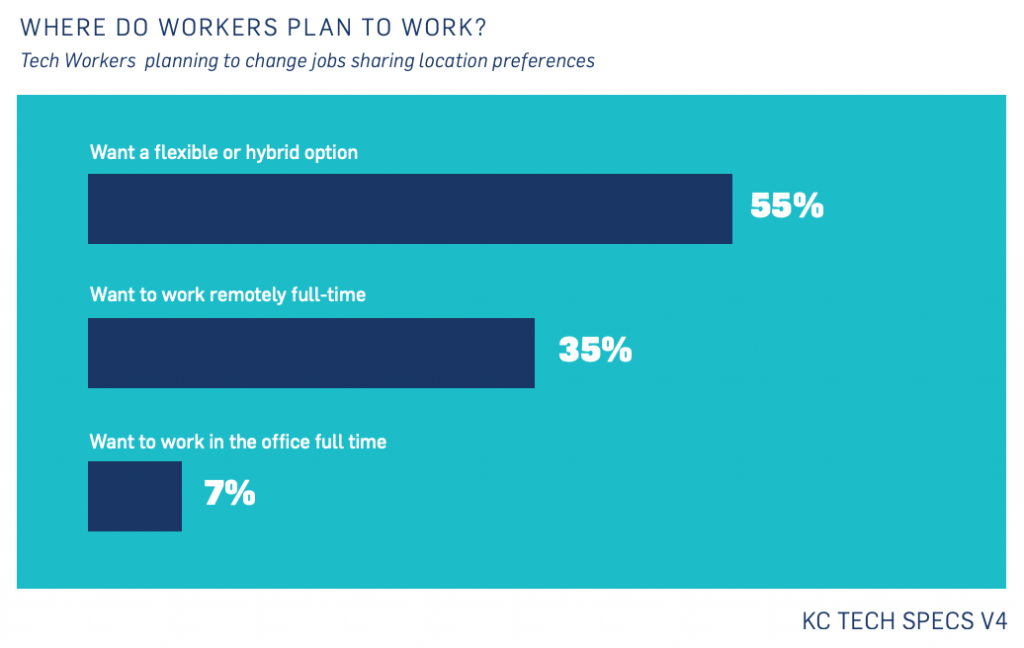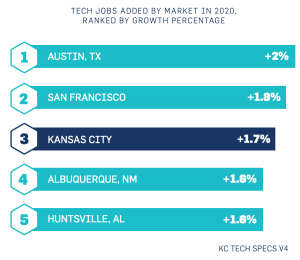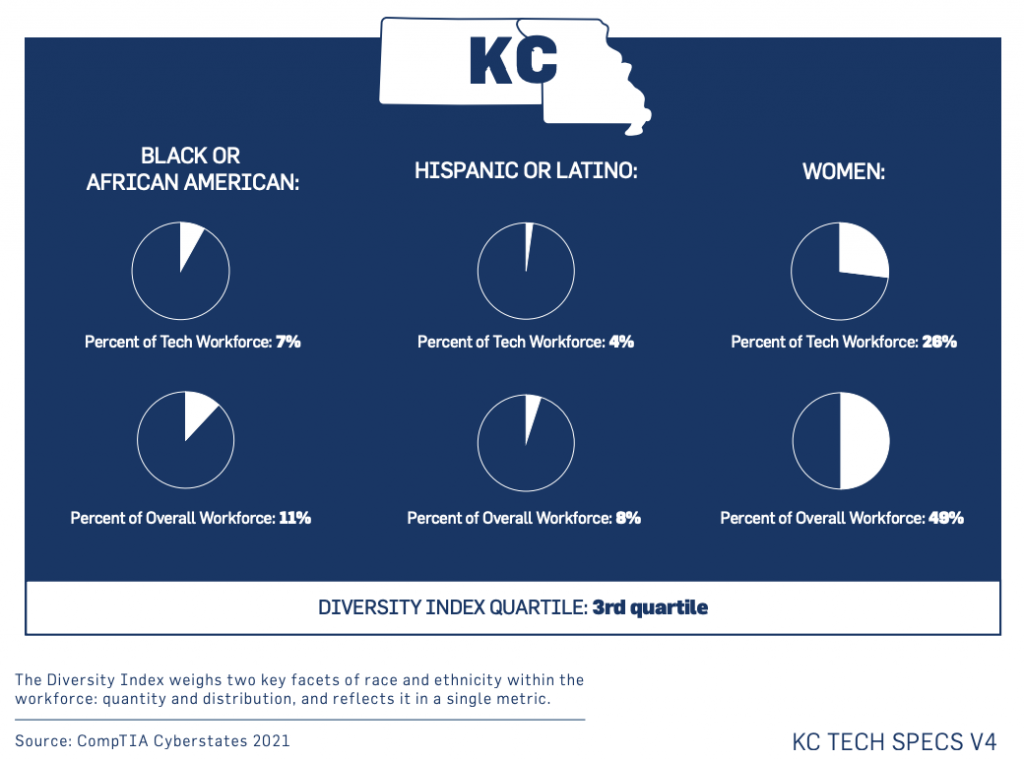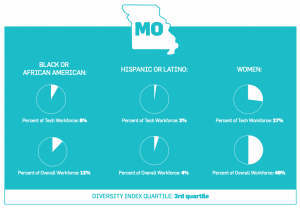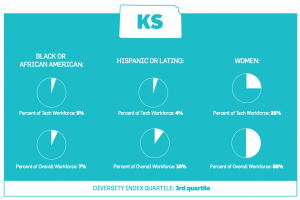Kansas City is adding tech jobs at a rapid pace, Kara Lowe said, but local companies would be wise to remember they aren’t the only ones hiring as the workforce redefines the geography of and need for high-density tech hubs.
“This year will no doubt serve as an inflection point for our industry,” said Kara Lowe, chief operating officer for the KC Tech Council. “How do we determine future success? How do we ensure it?”
“Say you’re casting a wide net to catch top talent outside of Kansas city — expect that same net to cast within your organization from other markets; [targeting] your top employees as well,” advised Lowe, chief operating officer for the KC Tech Council.
It’s about attention to retention, she told a virtual crowd gathered for a recent presentation of the tech advocacy group’s KC Tech Specs V4 report.
Click here to explore the KC Tech Council’s Tech Specs.
“As we all know, it’s less expensive to retain the employee you have than it is to find a new one,” Lowe said. “It really starts with listening to them within your own four walls, and thinking creatively around — beyond just salary — total compensation and ways to retain workers through re-skilling and other individual, unique job attributes.”
Following industry trends is key, she added, noting competitors — especially the five leading tech employers (Alphabet, Amazon, Microsoft, Apple and Facebook) — might be resetting employee expectations.
“So if Facebook, for instance, decides to keep its workers remote, that puts pressure on everyone else to do something like that,” Lowe said. “Keep an eye on the decisions that they’re making in terms of workforce and culture, recruitment, and satellite headquarters.”
Among the data released in the KC Tech Specs report, the KC Tech Council reported a “Brain Gain” in Kansas City of +3,363 — representing the number of tech degree graduates in the region versus tech talent job creation in the market — ranking the metro ninth among a spectrum of tech communities.
“These rankings can be defined as a success and an opportunity for the region. KC consistently performs strongly when it comes to obtaining talent, we struggle when it comes to generating our own said talent,” the report reads. “When comparing our region to other midwestern markets such as St. Louis and Chicago, Kansas City rises above. However there is room to prioritize talent in a way that elevates our ranking to be closer in comparison to tech talent hotbeds such as Austin and Denver, while placing an emphasis on talent attraction alongside talent generation.”
Click here to take a closer look at the full KC Tech Specs v4 report.
How Kansas City stacks up against other markets on importing and exporting tech talent demonstrates the metro’s resiliency against all odds, Lowe said.
“All of the economic shares for technology went up in 2020; a pretty exciting statistic given the year we had economically across our entire country,” she said, offering a further glimpse into the report’s findings. “And when you look at the percentage impact, one thing that jumps out at us is that tech is responsible for more of Kansas City’s economy than it is in either one of our states, Kansas or Missouri.”
The metro finished 2020 with 102,681 tech jobs — an increase of 1,723 jobs from 2019 and its largest jump in tech jobs since 2017, according to the KC Tech Council.
“Kansas City added the third-highest percentage of tech jobs of any U S market, after only two pretty big tech hubs that you may recognize: Austin and San Francisco,” Lowe continued. “This is something that our region should be extraordinarily proud of; and this is momentum that we plan to harness and maximize.”
Looking at raw job growth — not just percentage growth — Kansas City still ranked No. 11 in overall tech jobs added in 2020, outpacing much larger cities, she said.
“In 2020, we added 10 times the amount of jobs we did in 2019 in the tech industry in Kansas City,” Lowe said. “When we talk about cementing our resiliency in this report, it’s not just insulating our market from an economic storm or the industry from a storm that’s going on economically. In our case, we set sail directly into that storm and came out of the other side even stronger.”
The KC Tech Specs report isn’t intended to just serve as a “brag book” on job creation, she emphasized, specifically noting insights on diversity, equity and inclusion shortcomings within Kansas City’s workforce.
Four critical outcomes the KC Tech Council tied to a meaningful DEI strategy: more effective talent recruitment and retention; higher productivity and boosted innovation; heightened employer reputation; and greater financial performance.
“We have the opportunity to improve and to make our region even stronger in a year that revealed the systemic inequalities that are so pervasive, not only in our daily lives, but certainly in our workplaces,” Lowe said. “This is the moment to focus on how DEI can improve our region, our lives and our tech industry specifically.”
Click here to hear Ryan Weber, KC Tech Council president, talk all things KC Tech Specs on a recent segment of KMBZ Radio’s Midday with Jayme and Grayson.
This story is possible thanks to support from the Ewing Marion Kauffman Foundation, a private, nonpartisan foundation that seeks to build inclusive prosperity through a prepared workforce and entrepreneur-focused economic development. The Foundation works to change conditions, address root causes, and break down systemic barriers so that all people – regardless of race, gender, or geography – have the opportunity to achieve economic stability, mobility, and prosperity.
For more information, visit www.kauffman.org and connect with us at www.twitter.com/kauffmanfdn and www.facebook.com/kauffmanfdn.



